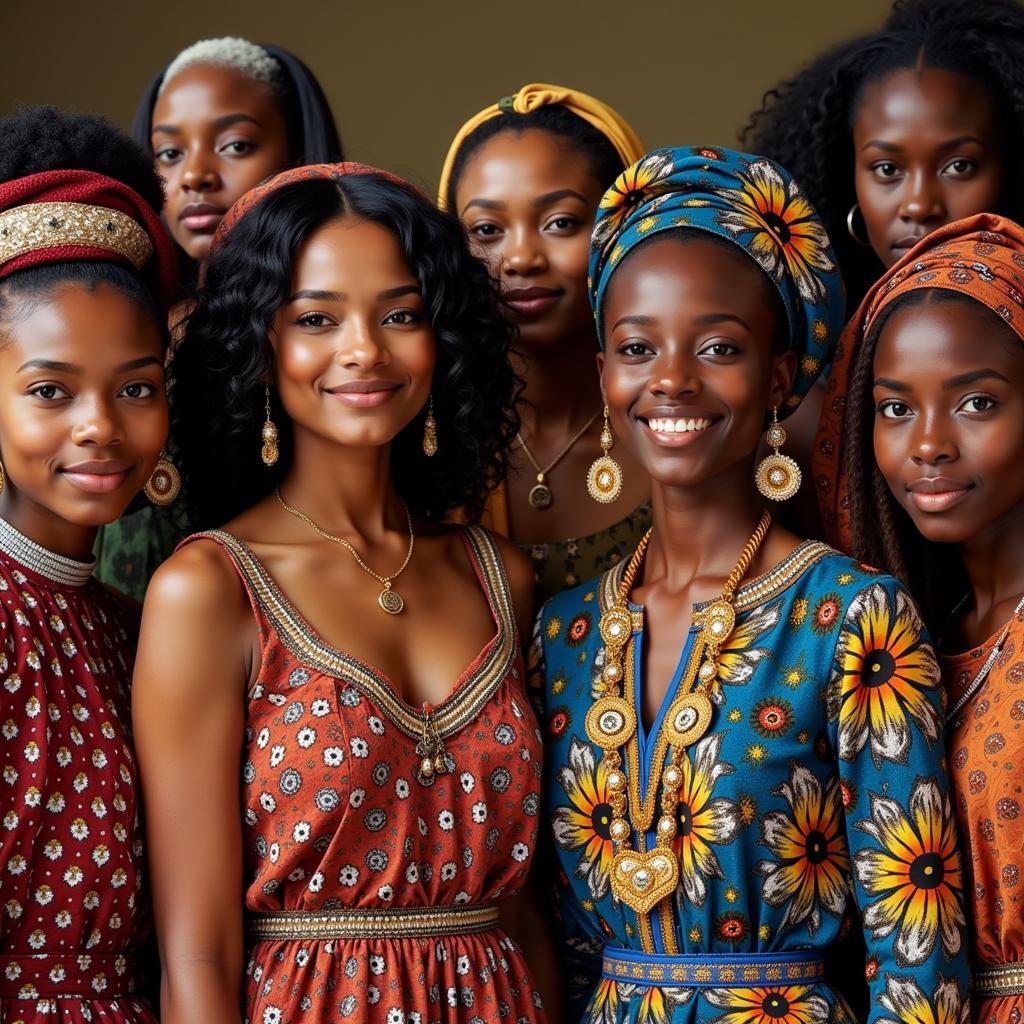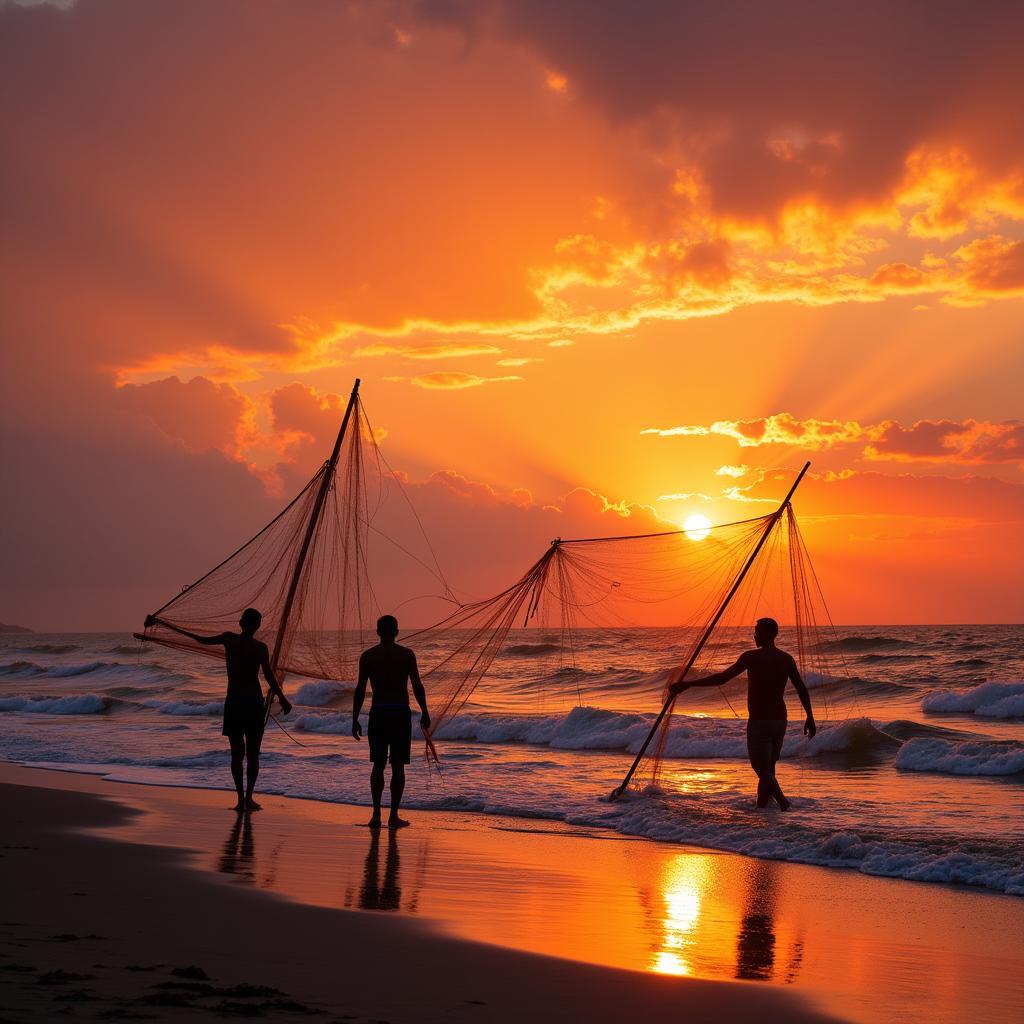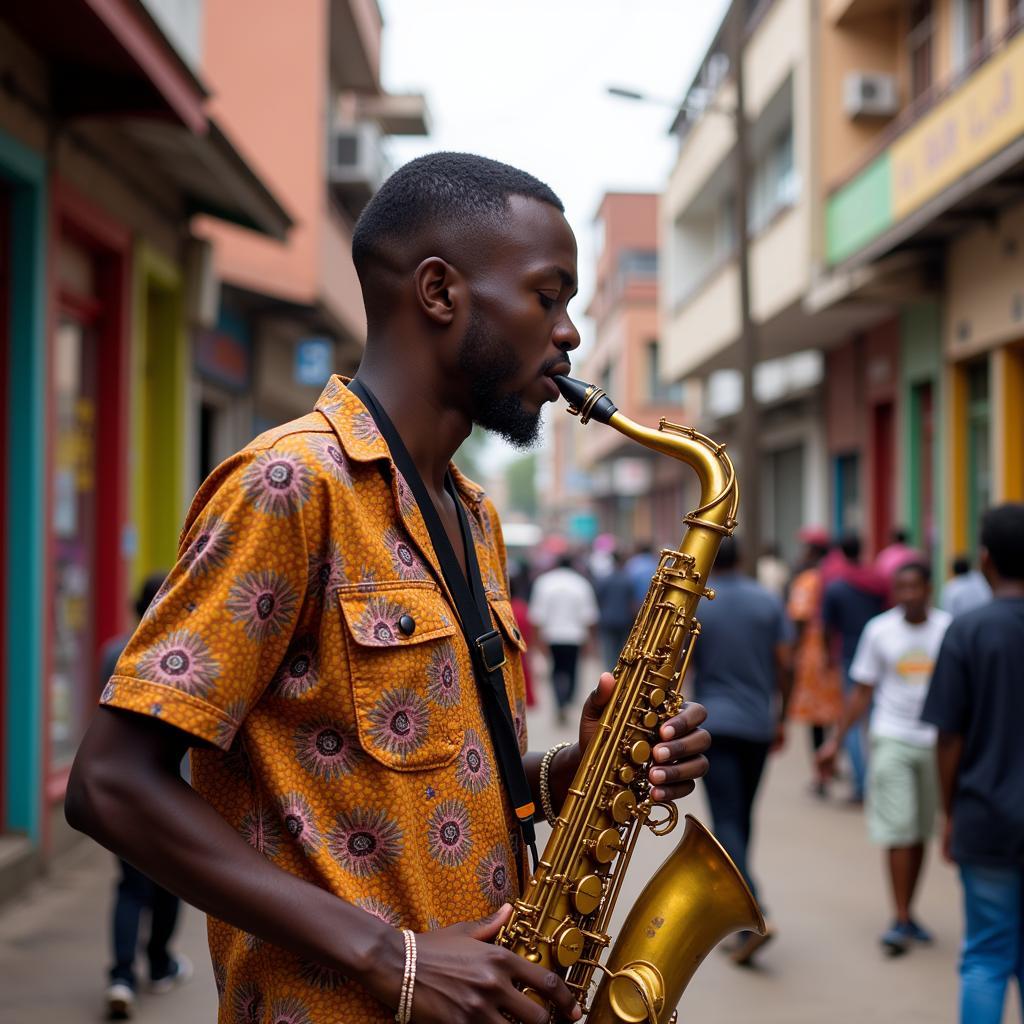Exploring the Rich Tapestry of African Indian People
African Indian People represent a vibrant and diverse community woven into the fabric of both Africa and India. Their history, spanning centuries, is a compelling narrative of migration, cultural exchange, and adaptation. This article delves into the multifaceted experiences of this community, exploring their historical roots, cultural contributions, and contemporary challenges.
A Journey Through Time: The History of African Indian People
The connection between Africa and India stretches back millennia, predating European colonialism. Early trade routes across the Indian Ocean facilitated the movement of people, goods, and ideas. Indian merchants established communities along the East African coast, intermarrying with local populations and contributing to the growth of Swahili culture. Later, during the colonial era, indentured laborers from India were brought to Africa, primarily to work on infrastructure projects. This period saw a significant influx of Indian immigrants to countries like South Africa, Kenya, Uganda, and Mauritius, further diversifying the African Indian population. These migrations laid the foundation for the diverse and thriving African Indian communities we see today.
Early Interactions and Cultural Exchange
The earliest interactions between Africans and Indians were largely peaceful and centered around trade. Indian traders brought textiles, spices, and other goods, while African communities offered gold, ivory, and other resources. This exchange not only fostered economic growth but also led to a blending of cultures. Swahili, a language that emerged along the East African coast, is a testament to this cultural fusion, incorporating elements of both Bantu and Indian languages.  Map of Early Trade Routes Between Africa and India This early period of cultural exchange laid the groundwork for the complex relationship between Africa and India.
Map of Early Trade Routes Between Africa and India This early period of cultural exchange laid the groundwork for the complex relationship between Africa and India.
African Indian Communities Today
Today, African Indian communities thrive across the continent, each with its unique identity and cultural expressions. From the bustling streets of Durban to the vibrant markets of Nairobi, African Indians have made significant contributions to the social, economic, and political landscape of their respective countries. They are entrepreneurs, doctors, lawyers, artists, and politicians, shaping the future of Africa in countless ways.
Cultural Preservation and Adaptation
African Indian communities have demonstrated remarkable resilience in preserving their cultural heritage while adapting to their African contexts. They celebrate traditional Indian festivals like Diwali and Holi, while also embracing African customs and traditions. This cultural fusion creates a rich and dynamic tapestry, reflecting the community’s ability to navigate multiple cultural identities. african cuisine names are often incorporated into Indian dishes, creating a unique culinary experience that reflects the blending of these two cultures.
Challenges and Opportunities
Despite their successes, African Indian communities have also faced challenges. Issues of identity, belonging, and discrimination have at times tested their resilience. However, they have consistently overcome these obstacles, demonstrating a strong sense of community and determination. Today, African Indian people continue to play a vital role in shaping the future of Africa. african job recruitment portal for indian peoples can offer valuable resources for those seeking employment opportunities.
What is the future of African Indian relations?
The future of African Indian relations appears promising, with increasing collaboration in areas such as trade, technology, and cultural exchange.
How have African Indian communities contributed to African society?
African Indian communities have made significant contributions to various sectors, including business, education, and healthcare.
What are some common misconceptions about African Indian people?
One common misconception is that all African Indians are recent immigrants, overlooking the long history of their presence on the continent.
Conclusion
The story of African Indian people is a testament to the power of human connection and cultural exchange. Their journey, marked by both challenges and triumphs, continues to enrich the diverse tapestry of Africa. Understanding their history and contributions is essential to appreciating the complex and interconnected world we live in. African Indian people remain a vibrant and integral part of the African continent, and their story continues to unfold. african boy in indian train image is a poignant reminder of the human connections that bind these two continents.
FAQ
- What is the origin of the African Indian community?
- What are some key cultural practices of African Indians?
- What are the major challenges faced by African Indian communities?
- How have African Indians contributed to the economies of African countries?
- What is the future outlook for African Indian relations?
When you need help, please contact us at Phone Number: +255768904061, Email: kaka.mag@gmail.com, or visit us at Mbarali DC Mawindi, Kangaga, Tanzania. Our customer service team is available 24/7. african jay ship offers insight into the historical connections between Africa and India. We encourage you to explore other related articles on our website for a deeper understanding of this fascinating topic.



